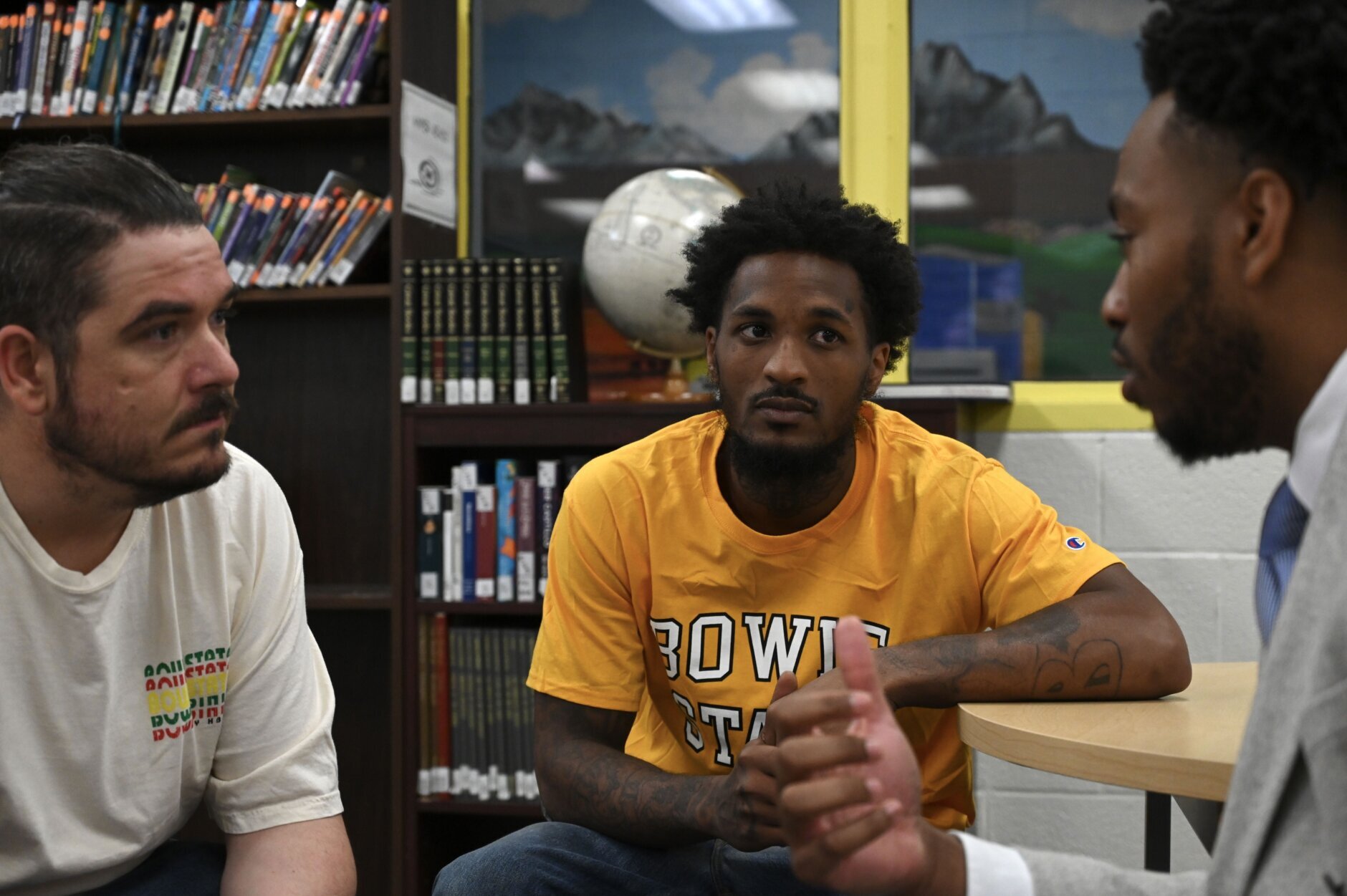
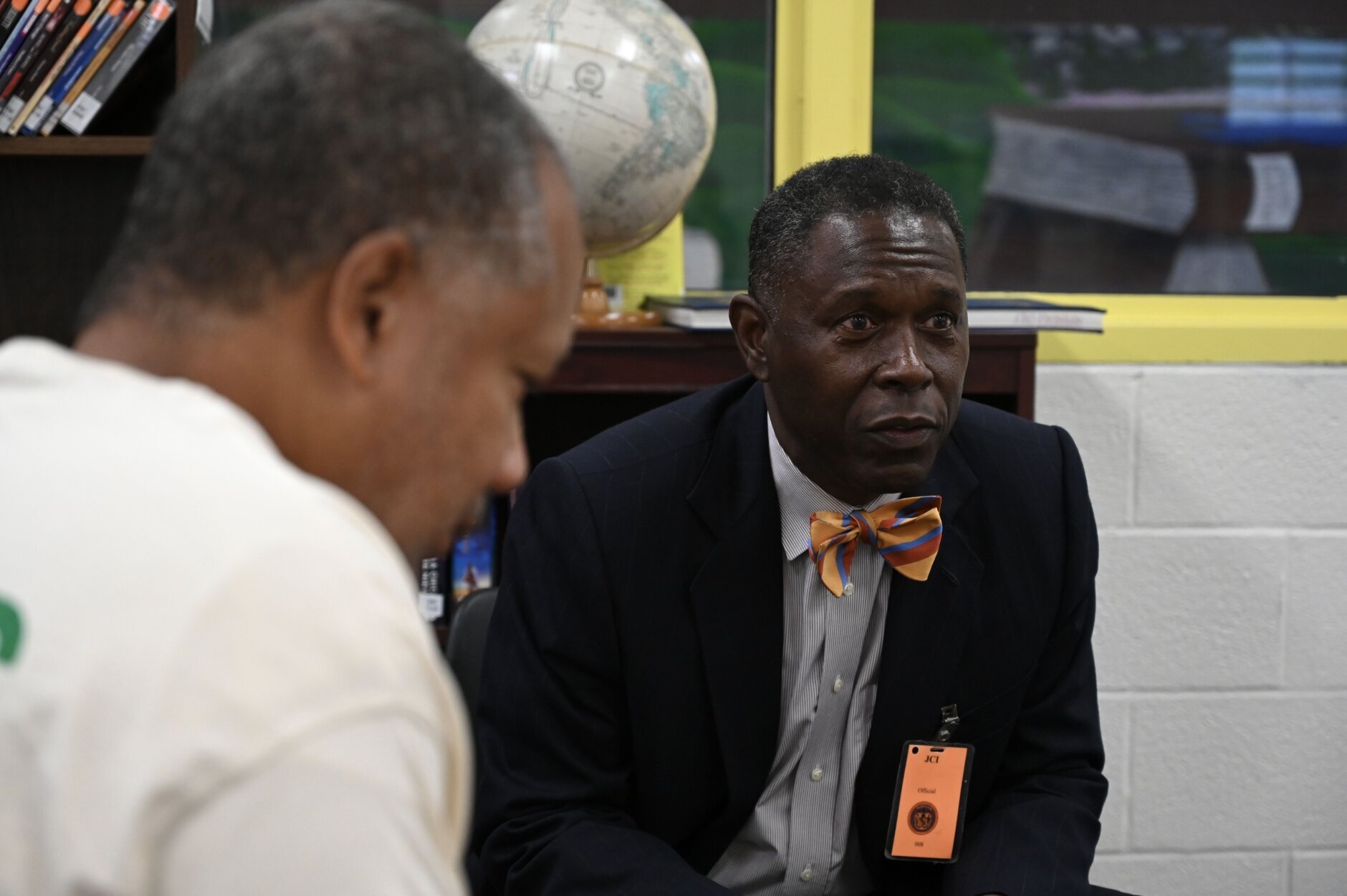
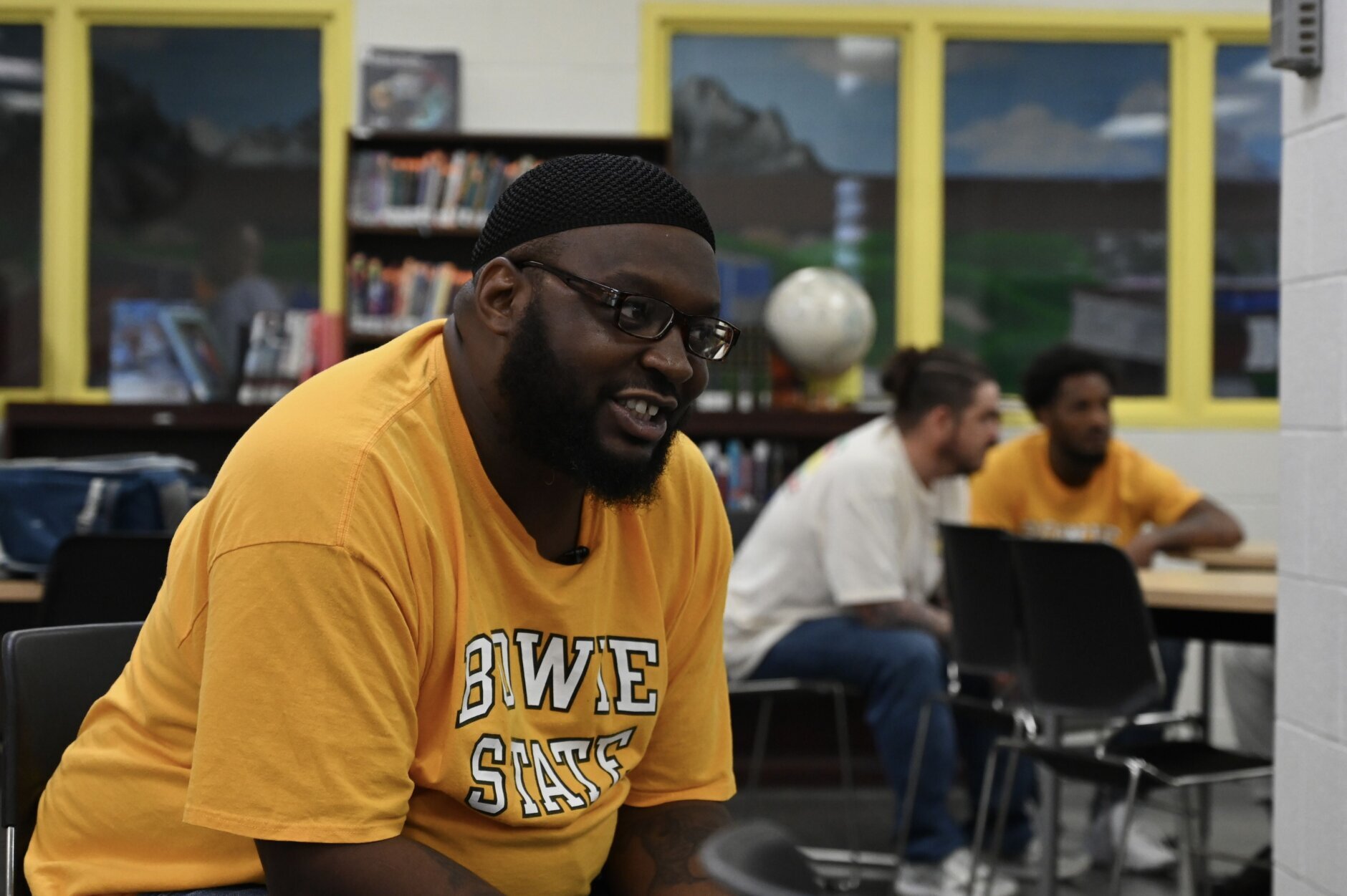
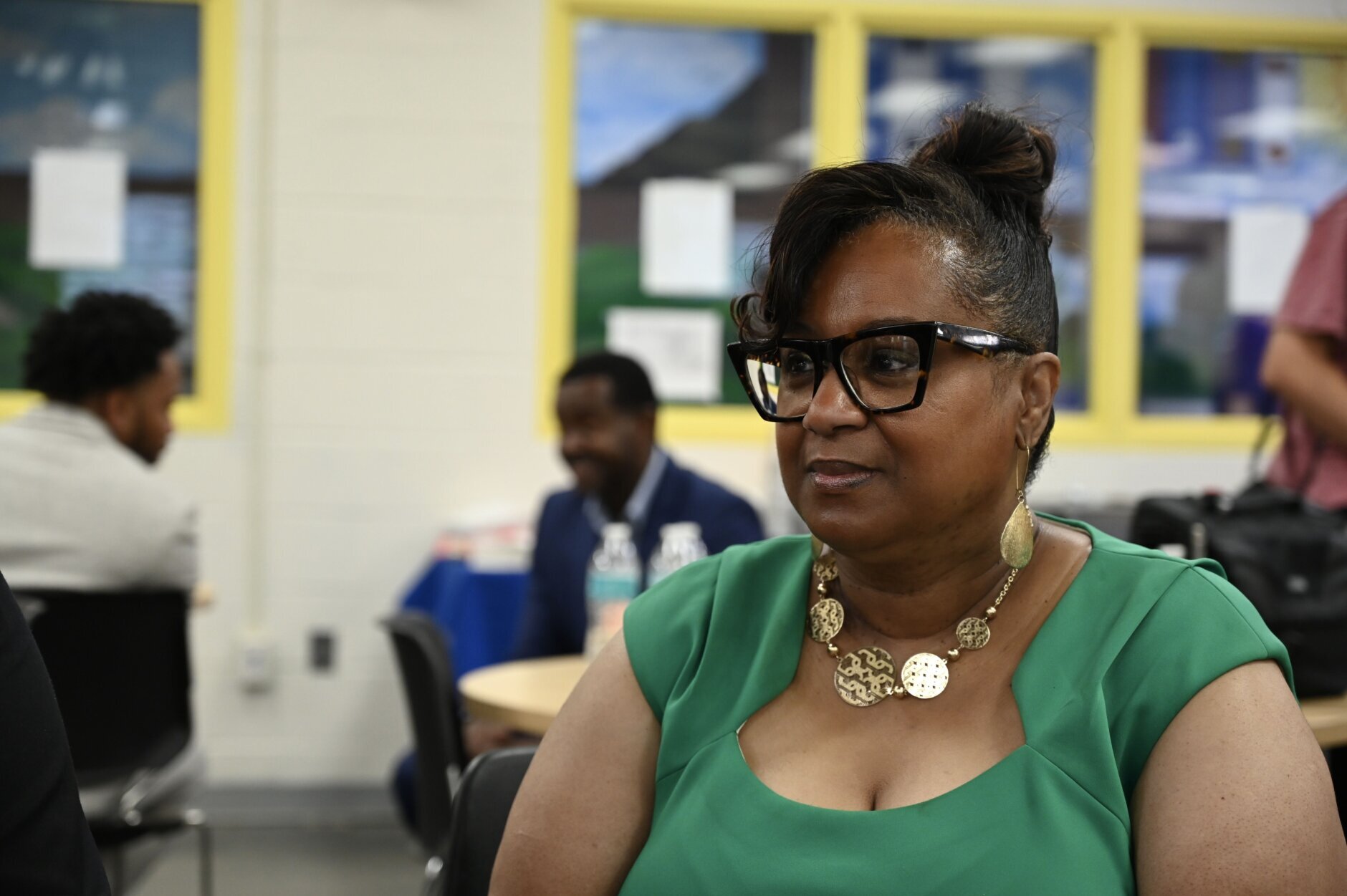
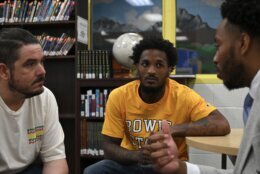
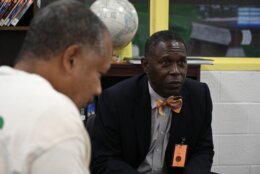
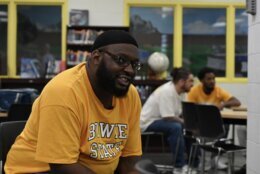
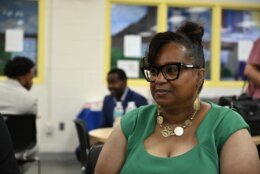
Nine prisoners at the Jessup Correctional Institution in Maryland are working toward their college degrees, and the hope is that the positive change they’re experiencing will be contagious.
At a gathering inside the prison library in Jessup, Maryland, Secretary of the Department of Public Safety and Correctional Services Carolyn Scruggs talked about what’s behind the Bowie State University degree program at the prison.
“Ninety percent of the individuals who are incarcerated [within the facility] with me — where are they going? They’re going back into the community,” she said. So, Scruggs poses the question: “Why not — while I have their attention — make them successful?”
Mark C. Booker, instructor with the Department of Behavioral Sciences and Human Services at Bowie State, agreed with Scruggs on the need to equip people who are serving time in prison for a future outside its walls.
“They may have victimized individuals,” Booker said, “but this is now a transformation in their behavior, and they deserve the opportunity to have this learning.”
Booker said he introduces the men who take part in the college program to a number of concepts. Number one, he said, “I teach them to have a hopeful attitude. Number two is to crave rigor and number three, you must have stubborn discipline.”
Among the men enrolled in the courses that lead to a degree in sociology is Kyle Longerbeam, who was frank about his reason for initially signing up. For him, the attraction was “getting out of the cell, just to be out and about,” but he said, “Once I got into the class, there was no looking back.”
Now, Longerbeam said he talks about what he’s learning during wide-ranging conversations with his son. They encourage each other. “I ask him questions about writing. My weakest point is punctuation,” Longerbeam said. “So I talk to him about it, because that’s where he excels.”
Longerbeam then offers his son advice on algebra, “because that’s my department,” he explained. “I love math, I always did.”
Longerbeam said he was an average high school student who did the bare minimum to be eligible to play football. College was not something he pictured for himself. “I never thought this was me, I thought I wasn’t smart enough for college.”
Damon McDuffie, another enrollee, said he was working to get his high school diploma at the prison when he heard about the college degree program. He said he didn’t take school seriously as a teenager, and that if he could talk to his younger self, he’d say: “Keep going, don’t give up. There’s a lot more doors that’ll open up now than if you do it later on.”
McDuffie said now he sees how he might be able to help others in the future. “I’m just trying to change, I’m here to help make change,” he said.
Jermain Williams said he’s the very first person in his family to take college courses and has surprised himself at his progress. “I was in special education. So my education was low,” but, “a lot of that came from a lack of effort.”
Since enrolling in the Bowie State program at Jessup, Williams said, “I’ve been doing a lot of studying, a lot of reading and pushing myself to keep up. And now I’m learning — education is the way!”
Timothy Hawkins, who grew up in Baltimore, said he had some college before going to prison, but that he too wasn’t serious about it at the time.
“When I was younger, as a child, I didn’t want to be near a book,” Hawkins said. “When you’re young, you think you know everything.”
But as he’s gotten older, he said, “The world is a lot bigger than the block that you live on or the school that you go to.”
All of the men who spoke to WTOP at the prison said when they go back to the general population, they’ll be asked about what they’re studying when they’re seen reading a book or writing. Hawkins said, “I’ll sit and explain it to them, so they learn things that way.”
Williams said some other prisoners will tease the participants in the college program. “You might have a few guys that’ll say something behind your back,” but Williams said he doesn’t let that bother him. And, he said, most often the reaction is positive.
“When I go back on my unit, with the other youth, I can teach them a few things that I learned in school, and that right there inspires them to want to come to Bowie State University.”
The corrections officials, along with the administrators and instructors at Bowie State, said the idea is that when prisoners return to their communities, their success as students will not just improve their lives, but the communities where they live.
Hawkins said he’s been thinking about maybe starting a nonprofit: “Something to help Baltimore,” he said. “Since I’m from Baltimore, I think I need to give back to the community.”








